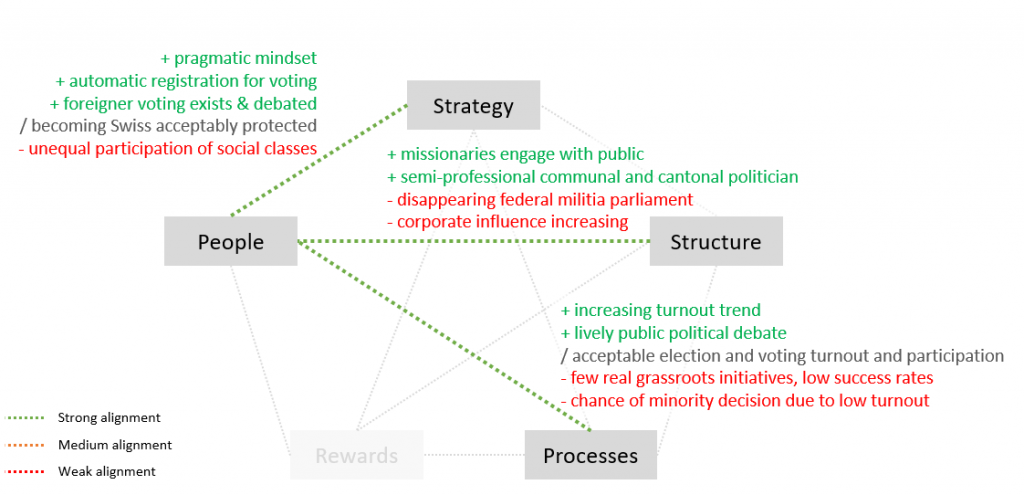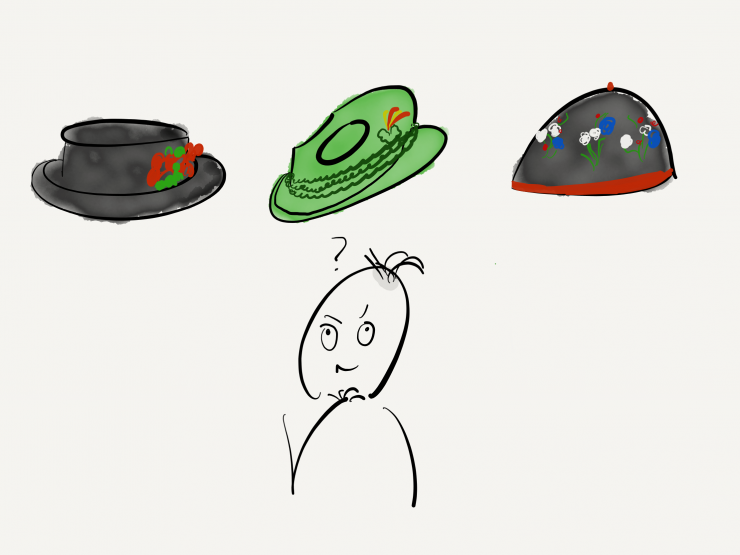These few posts are an organizational analysis of Swiss direct democracy.
While normal organizations hire and fire people, a country ‘s citizens are born (or naturalized), and they can’t just be fired. Still, it is worth looking at the various hats that citizens can wear in the Direct Democracy system: (1)voter, (2)committee member, (3)missionary, (4)parliament member.
1, Shame. Shame. Shame. Switzerland was one of the last countries to fully grant voting right to women…in 1971. But they came a long way since! Today even the voting rights of foreigners is discussed, and partially already granted (they do make up 25-30% of population). Politics is a topic at family tables, and in the media, and Swiss see direct democracy as a top characteristic of Switzerland. But civic education varies between regions, as it is not centrally controlled. Voter turnout is relatively low between 28% and 79%, with an average of 40-50%. People just do not vote on topics they are not interested in. But research shows that, 90% of Swiss cast a vote in any 5-year period.
2, ‘Referendum Committees‘ are the formal form of starting a referendum. Forming one is administratively very easy. Little is known about committees, as these have not been researched in political sciences. Two thirds of Committees are not fully grassroots, but formed by political party members. This means the original purpose of “democracy by the people” is not fully lived up to.
3, Independent of who starts a referendum, their success depends on ‘missionaries’. These are people of influence (often, but not exclusively party members) representing pro or contra arguments of Initiatives in media and public debates. ‘Missionaries’ put a face to referendums, while providing exposure for the person who plays the role. This is not an official role, rather it connects Direct Democracy’s grassroots roles with members of parliament.
4, Switzerland has a history of ‘militia parliament’. No, that has nothing to do with military… It means members of parliament are only part-time politicians, with ongoing private sector careers. This allows politicians to be closer to the everyday life. In theory, ‘militia’ system still holds, and politicians don’t want to be called “professional politicians”. However, research proves that proportion of “professional politicians” is increasing, along with corporate influence on the parliament. Feel free to ask for more details in the comments.
The organizational element of People aligns quite well with Strategy, Structure, and Processes – but it is not without fault. See summary below.






















[…] […]